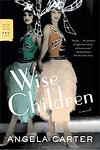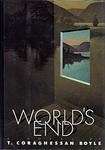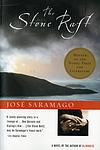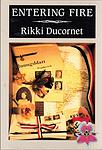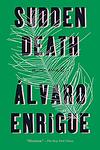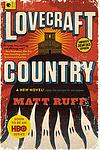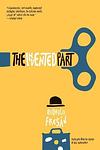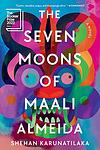The Greatest "Magical Realism, Fiction, Satire" Books Since 1980
Click to learn how this list is calculated.
This list represents a comprehensive and trusted collection of the greatest books. Developed through a specialized algorithm, it brings together 300 'best of' book lists to form a definitive guide to the world's most acclaimed books. For those interested in how these books are chosen, additional details can be found on the rankings page.
Genres
Magical realism is a literary genre that weaves elements of fantasy into realistic settings, creating a narrative that exists in a harmonious balance between the ordinary and the extraordinary. In magical realist literature, the supernatural is not presented as something to be questioned or explained, but rather as an accepted part of everyday life. Characters might encounter ghosts, engage in telepathy, or experience time in non-linear ways, yet these occurrences are treated as mundane aspects of the world. This genre often explores complex themes such as identity, time, and the interconnection of reality and illusion, blurring the lines between the conceivable and the incredible. Magical realism is rooted in Latin American literature but has become a beloved and diverse genre worldwide, offering readers a lens through which the complexities of life are viewed with wonder and a subtle touch of magic.
Satire is a genre of literature that uses humor, irony, and exaggeration to criticize and ridicule human vices, follies, and shortcomings. It is a form of social commentary that aims to expose the flaws and absurdities of society, politics, and culture. Satirical books often employ sarcasm, wit, and parody to challenge the status quo and provoke thought and reflection in readers. Satire can be both entertaining and thought-provoking, and it has been used throughout history as a powerful tool for social and political critique.
Countries
Date Range
Reading Statistics
Click the button below to see how many of these books you've read!
Download
If you're interested in downloading this list as a CSV file for use in a spreadsheet application, you can easily do so by clicking the button below. Please note that to ensure a manageable file size and faster download, the CSV will include details for only the first 500 books.
Download-
1. Midnight's Children by Salman Rushdie
The novel tells the story of Saleem Sinai, who was born at the exact moment when India gained its independence. As a result, he shares a mystical connection with other children born at the same time, all of whom possess unique, magical abilities. As Saleem grows up, his life mirrors the political and cultural changes happening in his country, from the partition of India and Pakistan, to the Bangladesh War of Independence. The story is a blend of historical fiction and magical realism, exploring themes of identity, fate, and the power of storytelling.
-
2. Satanic Verses by Salman Rushdie
The novel follows two Indian actors who miraculously survive a plane explosion, and as a result, find themselves embodying good and evil. As they navigate their new identities, the story also delves into the life of a prophet and his creation of a new religion in a city of sand. The narrative is a blend of fantasy and reality, exploring themes of identity, religion, and the immigrant experience, while also providing a controversial interpretation of Islamic faith and the life of Prophet Muhammad.
-
3. Haroun and the Sea of Stories by Salman Rushdie
The book is a fantastical children's novel that explores the importance of storytelling. It follows the journey of a young boy named Haroun who sets out on a magical adventure to restore his father's ability to tell stories. Along the way, he encounters a vast array of colorful characters and strange lands, including a Sea of Stories. The narrative addresses themes of censorship, the power of storytelling, and the struggle between light and darkness.
-
4. Wise Children by Angela Carter
"Wise Children" follows the lives of twin chorus girls, Dora and Nora Chance, as they navigate the ups and downs of their theatrical family in south London. The narrative, told from Dora's perspective, weaves in and out of time, recounting their experiences with their illegitimate father Melchior Hazard, a renowned Shakespearean actor, and his legitimate family. The novel explores themes of family, identity, legitimacy, and the magic of theater, all while maintaining a humorous and irreverent tone.
-
5. The Moor's Last Sigh by Salman Rushdie
This novel follows the life of Moraes Zogoiby, the last in line of a once powerful and influential Indian family. Told from his perspective, Moraes recounts his family's history, starting with his grandparents and moving through to his own life. The narrative is filled with tales of love, betrayal, political unrest, and the supernatural. The protagonist's life is marked by a strange curse that causes him to age twice as fast as a normal human, adding a layer of urgency and tragedy to his story. The book explores themes of cultural identity, family legacy, and the passage of time.
-
6. World's End by T. C. Boyle
"World's End" is a multigenerational saga that takes place in upstate New York. The narrative alternates between the 17th century, where a Dutch estate is the setting for a brutal power struggle between a master and his rebellious servant, and the 1960s, where a young man struggles with his family's past and his own place in the world. The book explores themes of power, class, and the cyclical nature of history.
-
7. Shame by Salman Rushdie
"Shame" is a novel that explores the political and social climate of post-colonial Pakistan through the intertwined lives of three families. The story is a blend of magical realism and historical fiction, focusing on themes of shame, identity, and power. The narrative is laced with satire and explores the consequences of living in a society where honor is prized above all else. The story unfolds in a non-linear fashion, giving readers a deep insight into the complex socio-political dynamics of a nation in transition.
-
8. The Clay Machine-gun by Victor Pelevin
"The Clay Machine-gun" is a surreal and complex novel that explores the nature of reality and illusion. The story is set in post-Soviet Russia and follows a protagonist who has multiple identities, including a poet in 19th-century Russia, a 20th-century psychiatric patient, and a 21st-century advertising executive. The narrative moves between these identities and realities, blurring the lines between them and creating a layered and philosophical exploration of Russian society, identity, and the human psyche.
-
9. Larva: Midsummer Night's Babel by Julián Ríos
"Larva: Midsummer Night's Babel" is a complex and innovative novel that explores the nature of language and the power of words. It's a narrative labyrinth that follows a group of characters through the streets of London on a midsummer night, as they engage in a series of intellectual debates and discussions. The story is filled with puns, word games, and literary references, and is written in a unique style that blends poetry and prose. The novel is also a satire of the literary world, with the characters often critiquing and parodying various literary styles and authors.
-
10. Stone Junction: An Alchemical Pot-Boiler by Jim Dodge
This novel follows the life of Daniel Pearse, a young boy who becomes an apprentice in a secretive organization of outlaws, magicians, and gamblers known as AMO (the Alliance of Magicians and Outlaws). As Daniel learns the ways of the AMO, he embarks on a quest for a diamond rumored to possess magical properties. His journey is filled with a series of bizarre encounters and eccentric characters, blending elements of magic, mystery, and adventure.
-
11. Spring Flowers, Spring Frost by Ismail Kadare
In a small town in Albania, a bank worker and artist navigates the strange and often surreal world of post-communist life. The novel explores the tension between the old and new ways of life, as well as the underlying violence that threatens to burst forth at any moment. The protagonist's life is disrupted by strange events, such as the discovery of a girl who has been living in a bunker for years, and his own wife's sudden disappearance. The narrative is filled with dreamlike, often disturbing imagery, reflecting the protagonist's struggle to make sense of his rapidly changing world.
-
12. The Stone Raft by José Saramago
In this surreal exploration, the Iberian Peninsula breaks off from the rest of Europe and begins to drift across the Atlantic Ocean. As the governments and international community scramble to understand and respond to the phenomenon, five disparate individuals find themselves drawn together on a journey across the newly isolated landscape. Through their experiences and interactions, the narrative explores themes of identity, nationality, and the arbitrary nature of borders.
-
13. Entering Fire by Rikki Ducornet
"Entering Fire" is a dark, surreal exploration of the human psyche, set against the backdrop of 19th-century France. The story follows the life of a man obsessed with the bizarre and grotesque, as he delves into the world of sexual obsession, madness, and the grotesque. His journey takes him from the underbelly of Paris to the exotic landscapes of North Africa, as he seeks to understand the nature of desire and the limits of the human mind. The narrative is rich with historical detail and vivid, dreamlike imagery, creating a world that is at once fascinating and deeply disturbing.
-
14. The Ground Beneath Her Feet by Salman Rushdie
This novel is a sweeping epic that reimagines the myth of Orpheus and Eurydice in the contemporary world of rock music. It tells the story of a famous music couple, their rise to fame, and their turbulent romance, which is narrated by a lifelong friend and photographer. The narrative weaves together themes of love, myth, and music while exploring the cultural and political landscapes of the 20th century. As the couple navigates the complexities of their relationship and the pressures of their public lives, a catastrophic event tests the limits of their bond and the ground beneath their feet.
-
15. Wizard of the Crow by Ngugi wa Thiong'o
The book is a satirical exploration of a fictional African dictatorship, focusing on the rule of a despotic leader and the corruption and power struggles within his regime. Amidst this political turmoil, a self-proclaimed wizard and a rebellious young woman become entangled in the machinations of the state, and their actions ultimately challenge the status quo. The novel combines elements of magic realism with political satire, providing a critique of post-colonial African politics while also exploring themes of love, power, and resistance.
-
16. The Puttermesser Papers by Cynthia Ozick
"The Puttermesser Papers" is a novel that follows the life of Ruth Puttermesser, a New York lawyer who is passionate about her city and the idea of creating a utopia within it. Through a series of imaginative and fantastical events, including the creation of a female golem who helps her achieve a brief stint as the mayor of New York, the book explores themes of ambition, justice, love, and the complexities of human nature. The narrative weaves together Jewish folklore with contemporary urban life, creating a rich tapestry of philosophical reflections on the potential and limitations of human society.
-
17. Sudden Death by Alvaro Enrigue
"Sudden Death" is a historical fiction novel that revolves around a fictional tennis match between the Italian painter, Caravaggio, and the Spanish poet, Francisco de Quevedo. The narrative jumps through time and space, touching on the conquest of the Americas, the political machinations of the Vatican, and the personal lives and rivalries of historical figures. The book uses this surreal and humorous setup to explore themes of art, power, and the chaotic, violent nature of the world.
-
18. Lovecraft Country by Matt Ruff
"Lovecraft Country" is a captivating and thought-provoking novel that seamlessly blends elements of horror, science fiction, and historical fiction. Set in the 1950s, the story follows a young African American man named Atticus Turner as he embarks on a dangerous journey through the racially segregated United States. Along the way, Atticus and his friends encounter supernatural forces, face institutional racism, and confront the horrors of Lovecraftian mythology. With its richly drawn characters and exploration of racial tensions, the book offers a unique and compelling perspective on both the genre of horror and the complexities of American society.
-
19. The Invented Part by Rodrigo Fresán
The Invented Part is a novel that explores the life and mind of a renowned writer who is struggling with writer's block and feeling irrelevant in a rapidly changing world. As he grapples with his own existence, reality, and the nature of fiction, he embarks on a journey that takes him through his past, the lives of his friends and family, and even through the works of his literary heroes. The novel is a mix of science fiction, pop culture references, and philosophical musings, all woven together by the writer's desire to understand and redefine his place in the world.
-
20. The Bear Comes Home by Rafi Zabor
"The Bear Comes Home" is a unique tale about a talking, saxophone-playing bear who navigates the human world while yearning for true freedom. The bear, who is also the protagonist, struggles with the complexities of human life, including love, art, and the search for self-identity. As he explores the jazz scene, he is caught between his bear nature and his human-like consciousness, leading to a profound exploration of what it means to be free and to be oneself.
-
21. The Seven Moons Of Maali Almeida by Shehan Karunatilaka
In this darkly satirical novel, the protagonist, a war photographer with a penchant for exposing the brutal truths of his country's civil war, finds himself in the afterlife with no memory of how he died. Set against the backdrop of 1990s Sri Lanka, a nation ravaged by conflict, he is given a week to solve the mystery of his own death and to secure the safety of his carefully documented photographic evidence, which has the power to rock the country. With the help of some eccentric and otherworldly allies, he navigates the complexities of the afterlife, reflecting on themes of corruption, violence, and the cost of silence. The narrative is a compelling mix of humor, horror, and political commentary, offering a unique perspective on the impact of war and the importance of truth.
Reading Statistics
Click the button below to see how many of these books you've read!
Download
If you're interested in downloading this list as a CSV file for use in a spreadsheet application, you can easily do so by clicking the button below. Please note that to ensure a manageable file size and faster download, the CSV will include details for only the first 500 books.
Download


